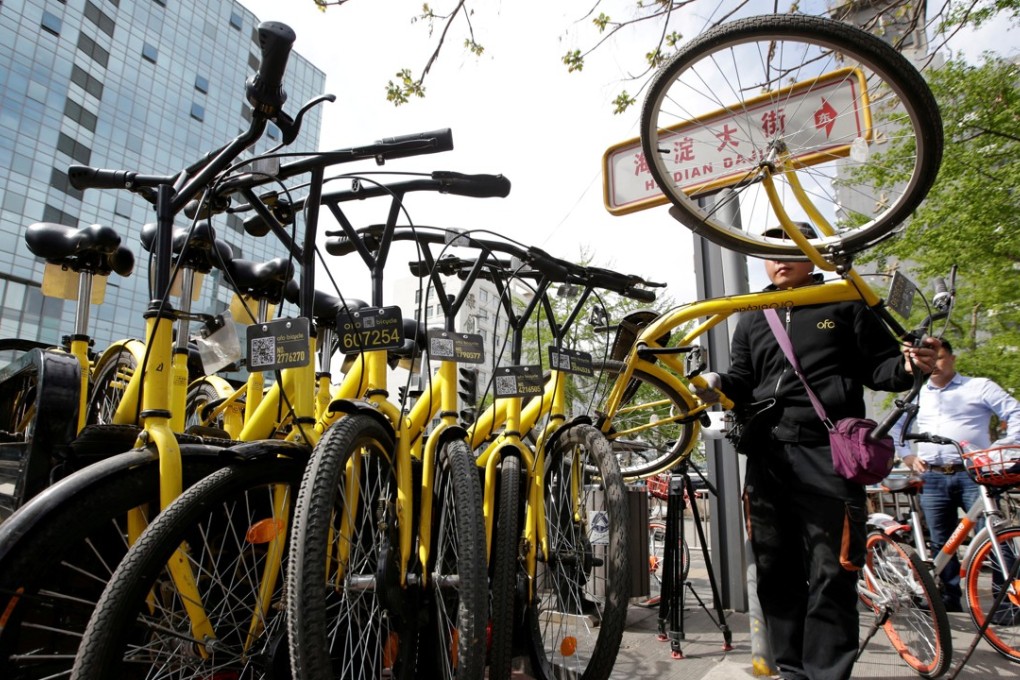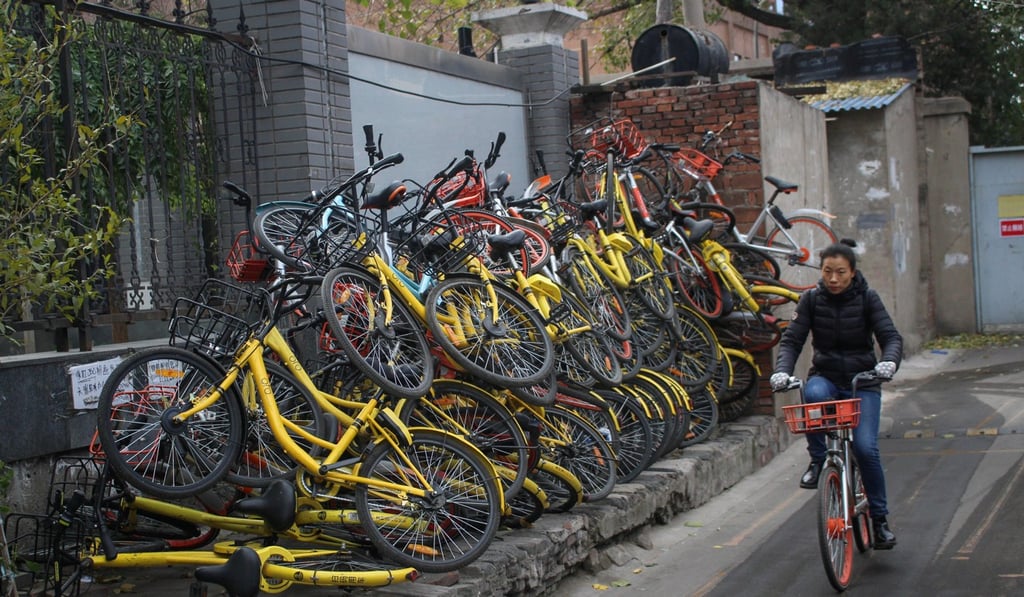Winter descends on China’s once-hot bike sharing market as another player goes bust
With more than 40 platforms, China’s bike-sharing market is rapidly consolidating after attracting US$2 billion in funding over the last 18 months

Winter looks set to rapidly cool this year’s hottest start-up trend in China as the cash-burning bike-sharing industry claims another victim and dashes the hopes of thousands of more riders waiting to get their deposits back.
Guangzhou-based Mingbike appears to have gone bust after numerous complaints by customers that they have been unable to reclaim their 199 yuan (US$29.87) deposit.
Chinese media reported on Thursday that the company laid off 99 per cent of its staff, some of whom posted complaints on social media saying their salary had been withheld for several months.
Calls by the South China Morning Post to Mingbike’s main phone line were not answered. The last post on the company’s Weibo account was in earlier October and its WeChat account has not been updated since November 10.
In response to the latest closure and growing risk of deposit refunds, Chinese authorities have stepped in, with Ministry of Transport spokesman Wu Chungeng saying on Thursday that local governments would play a major role in ensuring protection of consumer rights. He added that regulations for the industry were being drawn up by authorities.

At the top of the heap with a combined market share of 95 per cent are Mobike and Ofo, Beijing-based companies each valued at more than US$1 billion, making them unicorns in a field with many smaller competitors.